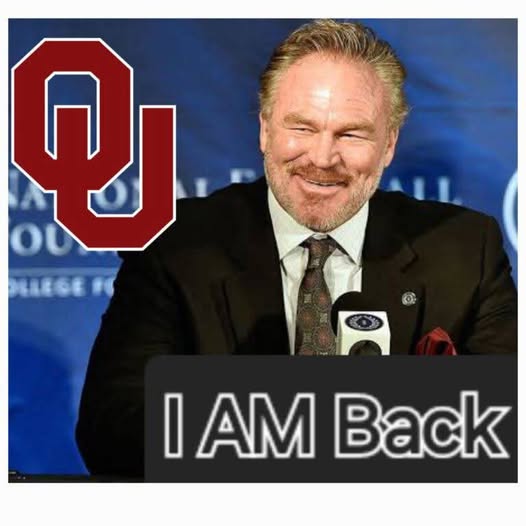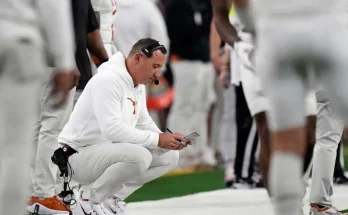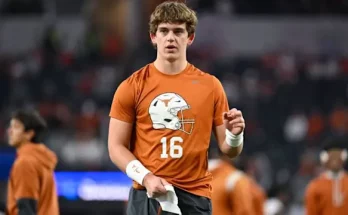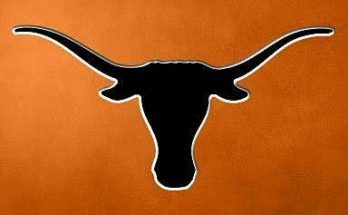Brian Bosworth Returns: Named Defensive Culture Advisor for Oklahoma Sooners, Revitalizing Team Spirit
In a surprising and welcome move, the University of Oklahoma has announced the return of Brian Bosworth to its football program as the Defensive Culture Advisor. This news has generated significant buzz among fans, players, and analysts alike, signaling a potential turning point for the Sooners’ defensive unit. Bosworth, a legendary figure in Oklahoma football history, brings with him not just a wealth of experience but an unmistakable passion and charisma that could invigorate the team’s spirit and reshape its defensive identity.
Brian Bosworth is no stranger to the Oklahoma Sooners. His legacy dates back to the 1980s when he was a dominant force at linebacker, earning two Butkus Awards as the nation’s top collegiate linebacker and establishing himself as one of college football’s most memorable personalities. Known as “The Boz,” Bosworth’s combination of relentless intensity, natural talent, and larger-than-life persona made him a cultural icon both on and off the field. Though his NFL career was shorter than many anticipated, his impact on Oklahoma football has endured, making his return a moment of both nostalgia and renewed hope.
The decision to appoint Bosworth as Defensive Culture Advisor comes at a critical time for the Sooners. Oklahoma’s defense has struggled in recent seasons, often criticized for inconsistent performances and a lack of cohesion. With the team aiming to reclaim its status as a national powerhouse, leadership in developing a strong defensive mindset has become a top priority. Athletic Director Joe Castiglione emphasized this when announcing Bosworth’s new role, highlighting the need for a figure who can instill toughness, discipline, and pride in the team’s defensive approach. Bosworth, with his unique history and fiery approach to the game, fits that profile perfectly.
Unlike a traditional coaching role, Bosworth’s position is tailored to influence the culture and mindset of the defense rather than focusing solely on technical or tactical aspects. This distinction is important because it recognizes the deeper challenges the Sooners face—beyond scheme and talent, there is a need for a renewed mental framework and identity on the defensive side of the ball. Bosworth’s career was defined by his mental toughness and competitive fire, and it is these qualities he aims to cultivate among the current players.
In interviews following the announcement, Bosworth expressed his enthusiasm for rejoining the Oklahoma football family and his commitment to helping the team reach new heights. He spoke passionately about the importance of pride and accountability in defense, emphasizing that defense is not just a position group but a mindset that should permeate every player on the field. Bosworth is known for his blunt honesty and motivational style, traits that could resonate well with the Sooners’ roster, especially younger players who are still developing their football identities.
The impact of Bosworth’s return extends beyond the locker room. For Oklahoma fans, his involvement is a powerful symbol of the program’s heritage and ambition. Bosworth represents a golden era of Sooners football when defense was a hallmark of the team’s success. His presence can rekindle fan enthusiasm and bring back a sense of tradition and pride that sometimes feels lost amid modern college football’s rapid changes and pressures.
Furthermore, Bosworth’s influence is expected to benefit the coaching staff, particularly defensive coordinator and position coaches, by providing insights drawn from his extensive experience as a player at the highest levels. His ability to mentor and connect with players on a personal level adds a valuable dimension to the team’s support system. Players often respond well to someone who has “been there,” and Bosworth’s authenticity could bridge generational gaps and foster a more unified defensive unit.
Beyond the immediate benefits to the Sooners, Bosworth’s return also sparks broader conversations about the role of culture advisors in college football programs. As the sport becomes increasingly complex, with greater emphasis on mental health, team dynamics, and personal development, roles like Bosworth’s signal a shift toward holistic approaches to team building. Instead of relying solely on Xs and Os, programs recognize that character, leadership, and culture are equally vital to sustained success. Bosworth’s role may well serve as a model for other teams looking to integrate experienced former players into advisory roles that emphasize these intangible but crucial elements.
Brian Bosworth’s journey from superstar linebacker to cultural ambassador for Oklahoma encapsulates a full-circle moment. His collegiate career was marked by raw talent and confidence, traits that helped him dominate on the field but also created challenges off it. Over time, Bosworth has evolved, gaining perspective on leadership and the importance of team dynamics. This maturation positions him uniquely to contribute meaningfully to the Sooners’ defensive culture today.
The Sooners’ recent defensive struggles highlight why this addition is so timely. In the ultra-competitive landscape of college football, defense often determines championships. While Oklahoma has traditionally been known for high-powered offenses, recent years have shown that neglecting defensive fundamentals can undermine even the most explosive attacks. Bosworth’s presence underscores a commitment to balance—building a defense that not only stops opponents but also embodies resilience and grit.
Early signs of Bosworth’s impact are already emerging in spring practices and team meetings. Players report a renewed sense of energy and focus when working with him, citing his ability to challenge them mentally and physically in ways that push their limits. His motivational style encourages accountability, teamwork, and a refusal to accept mediocrity. Coaches note that Bosworth’s involvement brings an added layer of intensity and purpose to defensive drills, which could translate to improved performance during the season.
Critics might question whether Bosworth’s past controversies and outspoken personality could clash with the demands of modern collegiate athletics, which emphasize discipline and professionalism. However, insiders stress that Bosworth has adapted his approach over time. His role as an advisor is carefully designed to leverage his strengths—passion, authenticity, and leadership—while fitting within the broader framework established by head coach and staff. This collaborative model aims to maximize his positive influence without disrupting team harmony.
Moreover, Bosworth’s return reflects a growing trend in college sports where programs reach back into their history to reconnect with former stars who embody the values and spirit they wish to promote. This approach strengthens institutional identity and fosters continuity across generations. For Oklahoma, a program with a rich tradition, bringing back a figure like Bosworth sends a clear message: the Sooners honor their past while striving for future excellence.
Looking ahead, the Sooners and their fans will be watching closely to see how Bosworth’s advisory role translates into on-field results. While culture change is often intangible and gradual, a reinvigorated defensive mindset could help Oklahoma reclaim its place among the nation’s elite programs. With Bosworth’s guidance, the Sooners hope to develop a defense characterized by toughness, discipline, and an unyielding will to win—a defense that can match the explosive offense the team is known for.
Brian Bosworth’s return to the Oklahoma Sooners as Defensive Culture Advisor is more than a nostalgic reunion; it is a strategic move aimed at revitalizing the team’s defensive identity and spirit. His unique blend of experience, passion, and leadership qualities positions him to make a meaningful difference in a program eager to recapture its glory days. As the Sooners gear up for upcoming seasons, Bosworth’s presence promises to be a catalyst for cultural transformation, inspiring players and fans alike to embrace the fighting spirit that defines Oklahoma football.
In conclusion, the addition of Brian Bosworth as Defensive Culture Advisor marks a new chapter for the Oklahoma Sooners. It highlights the importance of culture in building a successful football program and leverages the legacy of one of the school’s greatest defensive players. By focusing on mental toughness, pride, and accountability, Bosworth aims to strengthen the foundation of the Sooners’ defense and help propel the team back to national prominence. His return is a testament to the enduring power of tradition and the belief that sometimes, the best way to move forward is to bring the past along for the journey.



